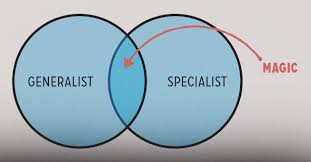I am republishing this article with new content as my learning on how to ask someone to be your mentor has evolved. 🙂 Hope you will find it useful.
We all need formal and informal mentors to help us grow and learn. Young professionals have more of a need for formal mentors. Seasoned professionals needs more a broader network, but not necessarily formal mentors. It’s more helpful to have “Board of Advisors,” a group of people you know and can go to for specific advice.
For younger professionals, asking someone to be your mentor can be daunting. Half of the battle is actually making sure you don’t chicken out and decide not to do it because of xyz. Even though it can be scary to ask someone to take on this role, remember that people are usually flattered if they are asked to help you guide your career. There are many ways for young professionals to ask someone to be your mentor. Here are some dos and don’ts that may help:
Do…
Communicate what you respect about him/her – It shows that you know why you would like them to be your mentor. Genuine praise also goes a long way. Try to find “deep” reasons that demonstrate that you’ve really thought about this, instead of shallow ones. A deep reason could be something like this: “I really respect how you handle work life balance while holding such a senior position.” A shallow reason sounds like this: “I want you to be my mentor because you are successful.”
Communicate your situation and how their mentorship can help – People become mentors because they are inspired by the passion and potential of those they mentor. Share where you are headed with your life and career, and why their experience/advice can help.
Actually ask the question – “Would you consider being my mentor?” – Some people shy away from the question and can leave the other person confused. If the person is a stranger, perhaps start with coffee instead of asking the question outright. People only become mentors when there is personal rapport and mutual respect. First ask to see if you can meet or call them once, and then see if you can build rapport with them. You also don’t want someone to be your mentor just because they have cool experience. You want to inspire them to care about where you are headed.
Communicate what type of mentor relationship you are looking for – This includes both the type of advice/feedback you are hoping to receive, and how often you hope to interact (once a quarter, every month, ad-hoc, etc…). Many people are happy to be mentors, but are also very busy people. Clearly articulating what kind of relationship you want to build with them will help them decide if they want to take this on.
Listen and adapt to their response – Very likely this person will be happy to be your mentor, but may counter about the frequency of communication. Just go with it. If they say no, don’t be offended, People are very busy. You can then see if they would just be open to you reaching out for advice again. Sometimes people feel pressured to agree to a “formal mentor” role. This doesn’t mean they do not ever want to meet with you again. They just cannot commit. Respect their decision. As long as they agree to meet again, they are actually still informal “mentors” to you. Be thankful.
Follow up – It’s up to you to make it easy for others to help you. If this person agrees to be your mentor, he or she would still expect you to take the lead, figure out how best to communicate, and proactively build the relationship over time. If this person didn’t agree to be your “formal” mentor, but agreed to you contacting them in the future for specific advice, then it’s up to you to be proactive and arrange that next coffee or call and be specific. Share what advice you need and why you think they can help you.
... read more



